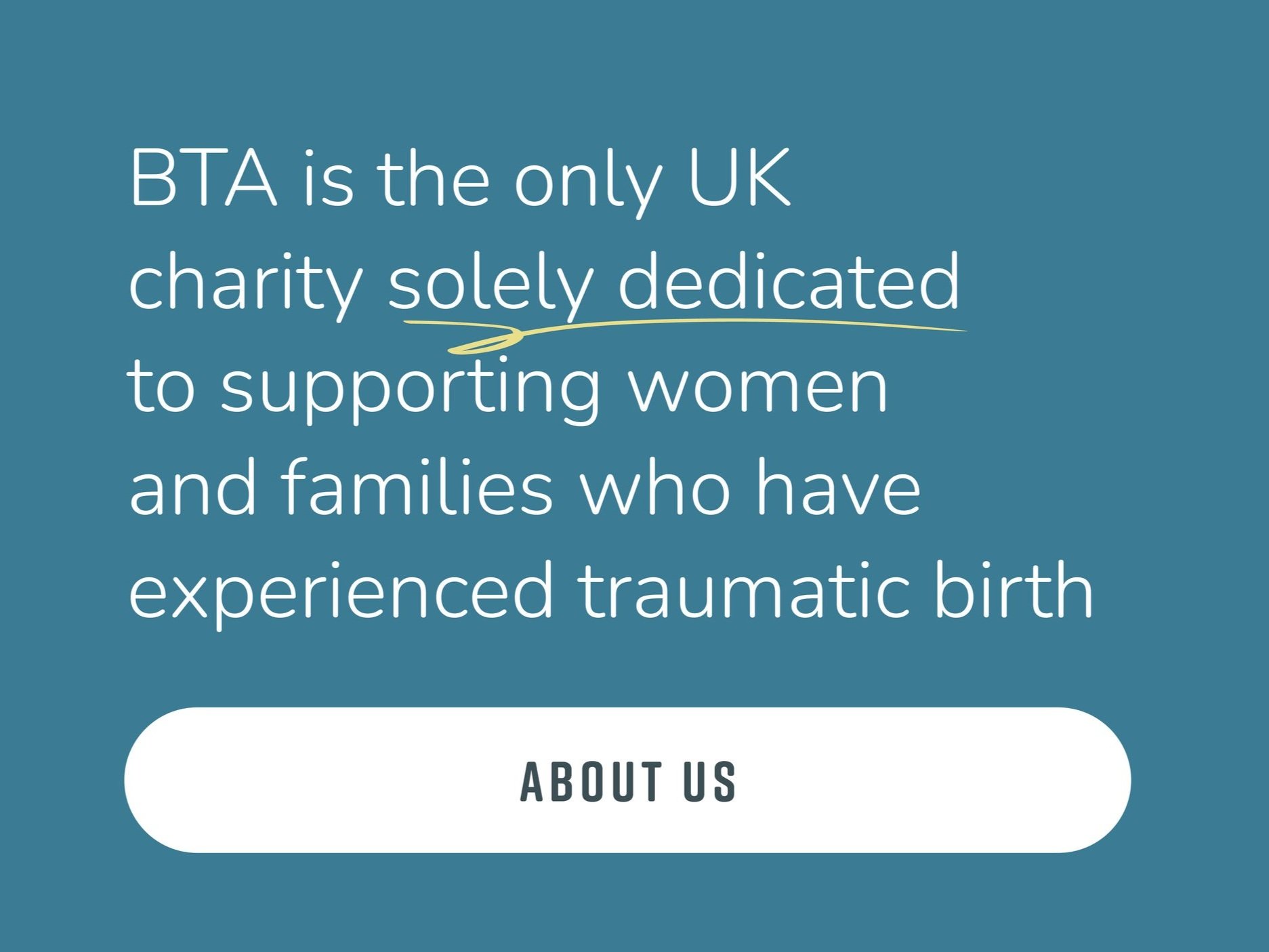Olivia’s story
Four months after I gave birth to my daughter, I was standing in the shower and saw blood gushing down my legs and pouring over my feet. I started to scream, and my husband burst in. He grabbed my arms asking me what was wrong and I couldn’t understand what he meant. I looked down and there was nothing there. No blood, just water from the shower. My heart was pounding and I was shaking so much that he had to help me out. I finally explained to him what life had been like for me since I gave birth to our daughter.
When I was 30 weeks pregnant, I was admitted to hospital and diagnosed with a very rare condition called placenta accreta, in which the placenta abnormally attaches to the womb. It meant that I was at risk of severe haemorrhaging, which could be life threatening for both myself and my baby.
A week later, on the antenatal ward, without warning blood began gushing my legs and over the floor. I called out for help and lots of midwives rushed in, they got me to labour ward and ready for an emergency Caesarean. I knew from the way the midwives and doctors were working together, swiftly and efficiently, just how serious this was. All I wanted was for them to save my baby girl.
I felt as if I was watching from outside my body. I believed that I was going to die, that I would never meet my baby girl or see my older children again. I said goodbye to my husband, and told him I loved him, and thought it was the last time I would see him. They rushed me into theatre and put me to sleep. The next time he saw me was in the Intensive Care Unit a few hours later. My body looked yellow and waxy, he thought I was dead and that he was there to turn off the machines, leaving him with a baby on the neonatal unit whose prognosis was unknown.
However, despite losing more than five litres of blood, I was saved by the skill of two brilliant obstetricians and their teams. I had multiple transfusions, and then six days later I was discharged from hospital. Leaving my baby in hospital that day was heart breaking, but after spending 30 days in the neonatal unit, she was able to come home too.
Although my physical recovery went well, the emotional impact hit me hard. I had recurring dreams, in which I saw my husband carrying the smallest white coffin containing her little body and would wake sobbing, sweating and shaking. These dreams sometimes came many times in one night and I would wake in the morning exhausted. I went through the motions of my life but inside a light had gone out.
Once my daughter was home, the dreams were replaced by hypervigilance – an extreme alertness. I struggled to go to sleep in case something happened to her. I would just watch her sleeping until I couldn’t keep my eyes open anymore. But I would wake with a start and be too scared to look at her in case she had died. The exhaustion continued and I started to feel crazy. If she slept longer than expected I rush to her bed and when I looked in I would see her dead. I would grab her, startling her, and although she was fine I was left in shock of what I had seen, that had not really been there. Anxiety would grip me and my response would either be tears or rage. I was hard to console because I could not explain what was wrong.
Sometimes rage would consume me over the smallest thing. My fight or flight reflex was in overdrive. I was angry with anyone who said or did anything wrong thing. People would say to me, “You are so lucky you did not die” or “You are lucky to be here”, and while all of this true I did not feel lucky. I felt, angry, afraid and alone. My husband knew I was not OK, but when he tried to talk to me I would be angry and defensive. I didn’t tell him what was happening to me in case he thought I was crazy and tried to hide my behaviour. It was only after the incident in the shower that I was able to tell him what was wrong.
Post traumatic stress disorder
My kind husband took me to the GP and I told her everything. She explained that my flashbacks and anxiety were symptoms of post-traumatic stress disorder (PTSD). She referred me for cognitive behavioural therapy – a painful process that involved reliving some of my painful memories, and helping me “refile” them so that they became part of the past instead of something I was constantly reliving. My therapist helped me understand that PTSD can happen to women traumatised by their birth, and that, while I was mentally ill, recovery was possible but I had to work at it.
When people hear the term PTSD, they think they know what it is – a mental health condition that soldiers suffer after witnessing horrors of war. No one really believes that it can happen to a woman following the birth of her baby. No one wants to hear this. Birth is supposed to be a glorious, life-changing event when precious memories are created that will be cherished of the rest of the woman’s life. But that wasn’t the case for me.
I have been well for a long time now – but like those soldiers who witness the horrors of war I can never forget. I can never unsee what I saw and I will never be who I was before that day. But I’m OK with that now because my daughter and I are well and now I know I am lucky.




